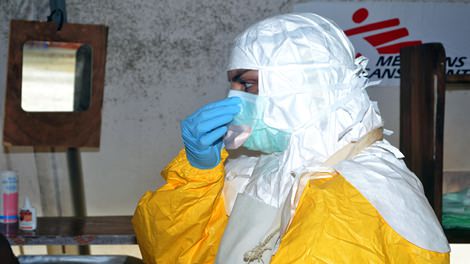When an Internet message announcing a salt water solution for Ebola went viral in July, many Nigerians were quick to take heed. Twenty people were hospitalized and two died, reportedly from an excessive intake of salt.
Madam Franca was among those ready to believe in the power of salt water. “My niece, who happens to be a nurse, sent me an SMS that early morning, and I obeyed it,” Franca explained. “I had to do anything to stop Ebola from coming close to me. I bathed with salt water, morning and night for two good days, but I did not drink. I am hypertensive. I also sent all my family and close friends the SMS.”
Nigerians watched with growing unease as the Ebola outbreak spread through Guinea, Sierra Leone and Liberia. Few believed the creaking health infrastructure or the government’s managerial skills would be able to survive such a test. So when Ebola-positive Liberian Patrick Sawyer stepped off a plane in Lagos airport on 20 July, collapsed and died, social media exploded.
But it was not just the salt water claims and bogus pastors promising salvation that made the running: government agencies and proactive individuals also took to the Internet to quickly debunk the rumours and offer proper advice. The authorities also threatened to arrest anyone spreading falsehoods, starting with the salt water “cure”. There was, after all, a plan in place.
Agencies/Canadajournal
 Canada Journal – News of the World Articles and videos to bring you the biggest Canadian news stories from across the country every day
Canada Journal – News of the World Articles and videos to bring you the biggest Canadian news stories from across the country every day



